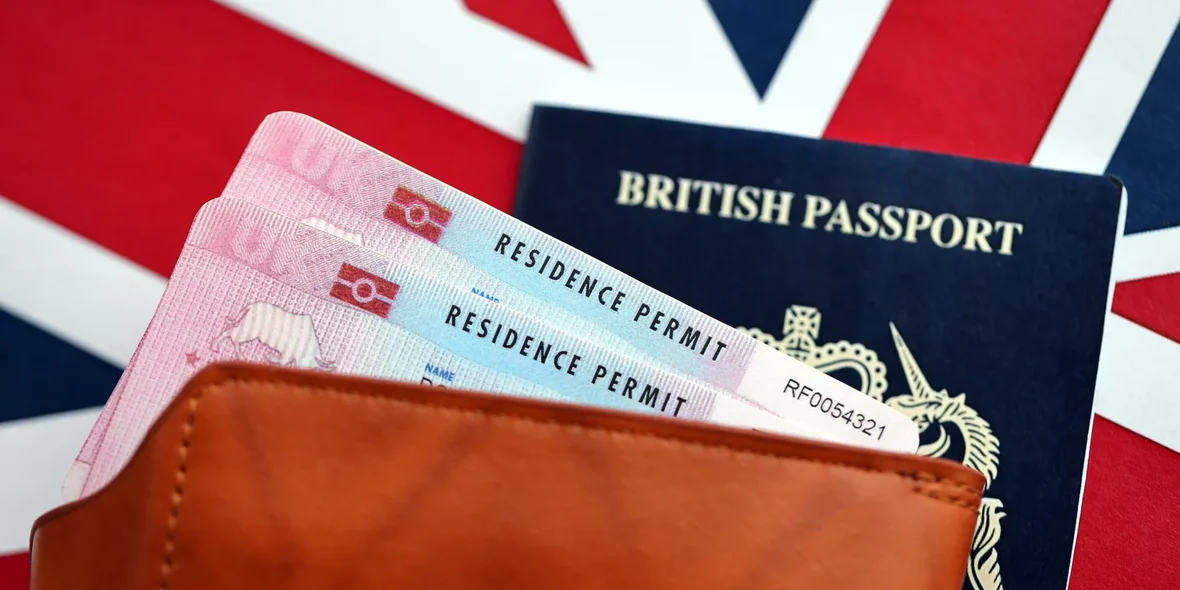
Temporary Residence Permit
Most countries require an appropriate immigration status to stay legally in the country. A temporary residence permit (TRP) allows foreign nationals to reside in the country for a limited period if certain requirements are met.
Definition and Main Types of Residence Permits
A residence permit is a document that certifies the right of a foreigner to stay legally in the country for a fixed period of time. Unlike a permanent residence permit (PML), which gives an unlimited right of residence, a residence permit has a certain period of validity, after which it must be extended or re-issued.
As a rule, a residence permit generally allows you to leave a country and enter it freely within the period of its validity. At the same time, in some countries, even with this document, foreign citizens must also apply for visas.
Often, residence permit holders can apply for permanent resident status only after 5 years. Such rules are established in most countries in the EU. However, in some of these countries (Hungary, Belgium), it is possible to obtain a permanent resident status instead of a residence permit after only three years of legal residency. The most strict requirements are set in Switzerland, where, in most cases, the possibility to obtain a permanent resident status is provided only after 10 years of legal residence in the status of a foreign citizen.
There are several main categories of residence permits, depending on the purpose of stay:
- Labor residence permit (temporary work permit) — intended for persons employed by companies in the host country. As a rule, an employment contract or an invitation from the employer is required.
- Student residence permit — issued to foreign students enrolled in educational institutions to complete a course of study (bachelor's, master's, language courses, etc.).
- Business/investor visa — designed for entrepreneurs and investors wishing to open a business, buy real estate, or invest in the economy of the host country. A popular option is to obtain a residence permit when registering an offshore company.
- Family residence permit is issued to family members of a person who already has a residence permit (spouses, minor children, or dependents).
Almost every state provides special conditions for entrepreneurs, highly qualified specialists, scientists, and investors. In some cases, the document may be issued by the authorities for certain purposes, for example, to assist the police in catching dangerous criminals.
The Process of Obtaining a Residence Permit: Requirements and Procedure
The procedure for obtaining a temporary residence permit usually includes several main stages. First, it is necessary to prepare the required package of documents, which may vary depending on the category of residence permit and the country. The standard package of documents usually includes:
- A completed application form
- A valid passport
- Financial guarantees (income certificates, account statements, sponsorship letters)
- Medical insurance
- Documents confirming the purpose (employment contract, call from an educational institution, business plan, marriage/birth certificate, etc.)
- Other supporting documents, as required
Once the documents are collected, they must be submitted to the authorized body — the embassy/consulate of the country abroad or the migration /immigration service — immediately upon arrival. In many cases, application fees are also required to be paid.
This is followed by a waiting period for a decision on the application, which can vary considerably from several weeks to several months. At this stage, the applicant may be scheduled for an interview at the consulate/migration office to clarify the details and purpose of the trip.
If the decision is positive, the applicant receives a residence permit for a certain time (usually from 6 months to several years), with the possibility of an extension if the conditions and requirements of the host country are met.
Rights and Obligations if You Have a Residence Permit
Having a residence permit gives a foreigner the right to legally reside in the country, as well as the opportunity to enjoy several other rights and privileges depending on the category of residence permit:
- Employment if you have a labor residence permit
- Education and access to the education system
- Receipt of medical and social services
- Ability to rent or buy real estate
- Doing business on a business visa
However, the holder of a residence permit is obliged to comply with the laws of the host country, timely renew the document, and may be deported in case of violation of the conditions of stay or committing offenses.
After a certain period of legal residence under a residence permit, and depending on individual circumstances, a foreigner has the opportunity to apply for a permanent residence permit (PML) or citizenship in a simplified procedure.
Opportunities After Obtaining a Residence Permit
After the expiration of the residence permit, a foreigner has several options for further action:
- Renewal of the residence permit if the initial requirements are met and it is necessary to continue staying in the country temporarily.
- Obtaining a permanent residence permit (PML) — after a certain period of legal residence under the residence permit (from 2 to 10 years, depending on the country). A permanent residence permit has no time limit.
- Naturalization and citizenship — if certain conditions are met, such as language skills, law-abidingness, and period of residence (usually from 5 years). Requirements may vary from country to country.
- Departure from the country at the end of the term of residence permit without extension.
Thus, a temporary residence permit is an intermediate step to potentially obtaining more permanent immigration status in the host country.








